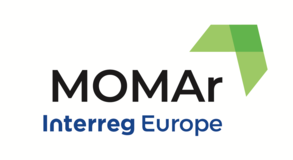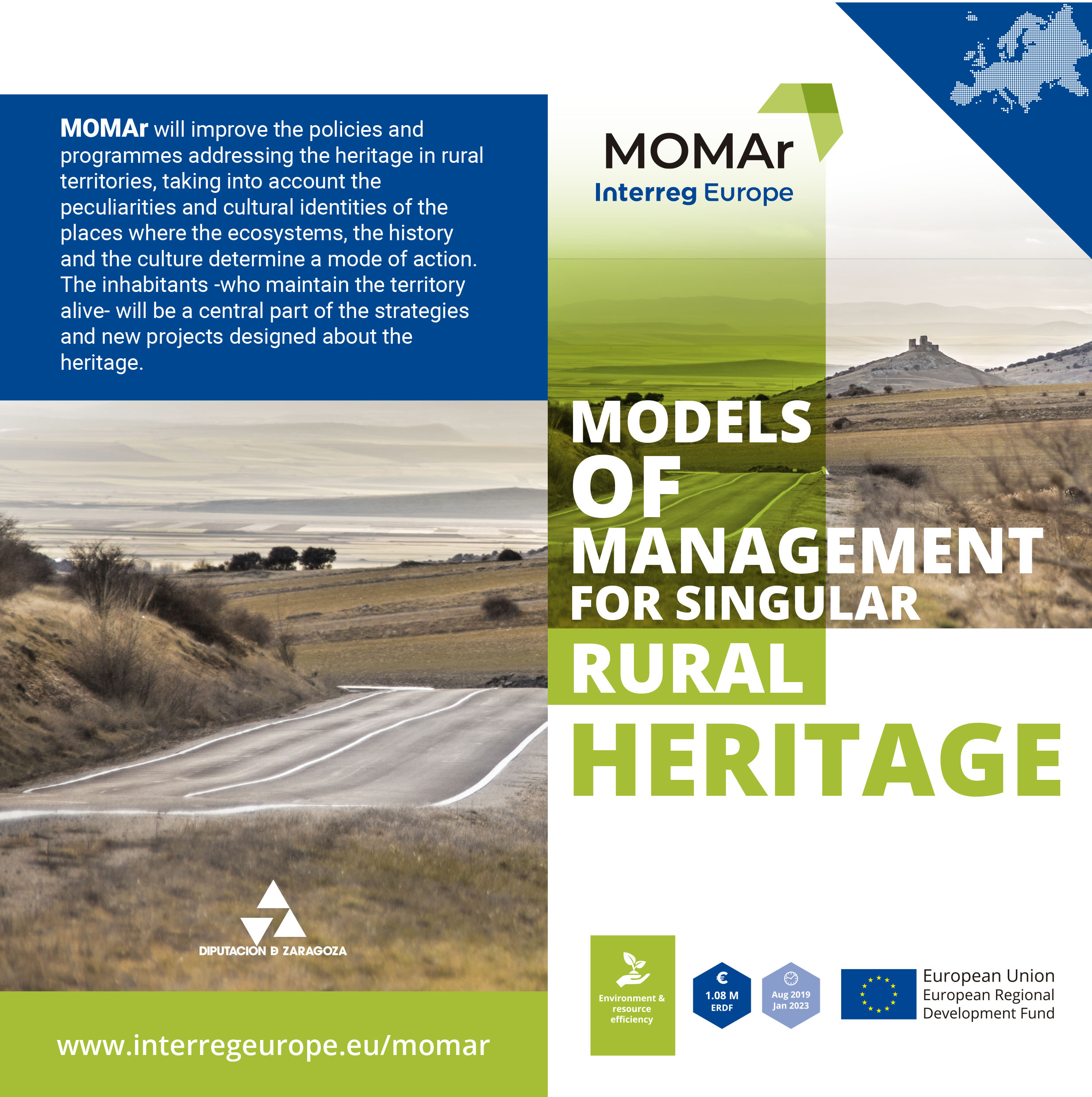Thanks to the experiences shared in the MOMAr project and the opportunity it has provided to reflect on the management of the singular rural heritage in the province of Zaragoza, the Zaragoza Provincial Government has started implementing its Action Plan, focused on the integrated management of the salt heritage of the province, with the management of the important salt industrial heritage of the village of Remolinos as the spearhead of the project.
The idea for this Action arose while experiences were being shared during a Stakeholders Meeting with the local development group ADRAE at the beginning of Phase 1 of the project. The possibilities of using the important industrial salt heritage as a driver for local development were explored in various meetings with the Stakeholders of the University of Zaragoza and the City Council of Remolinos and, finally, the City Council decided to finance the first studies necessary to materialize the idea. Those studies were carried out in collaboration with the Departments of Economics and History of Art of the University of Zaragoza and financed by the City Council of Remolinos. For this, two collaboration contracts were created between the city council and the University of Zaragoza.
The first one was related to “Catalogación, investigación y puesta en valor del patrimonio salinero de Remolinos (Zaragoza)” (“Cataloging, research and enhancement of the salt heritage of Remolinos (Zaragoza”). This study investigated the possibilities of the Salt Mine Heritage assets with a view to the rest of the Village Heritage attractions, which include the Goya paintings in the church and the natural heritage. The study also proposed an appropriate management approach for the Salt Mines.
The second one was “Plan de negocio y viabilidad del patrimonio industrial en Remolinos” (“Business plan and viability of industrial heritage in Remolinos”) and presented a comprehensive study about other Spanish European examples of management of Salt Mines as a Heritage Asset. It also estimated the cost of implementing different management models for the Remolinos Salt Mines.
The main idea is to use the exceptional industrial salt heritage of Remolinos as a way of developing the possibilities of the village, fostering not only the Salt Mines but also all the local, cultural, and natural resources with an integrated vision of its management.
The importance of MOMAr
For this reason, starting this year, and as a result of MOMAr's learnings, the Diputación Provincial de Zaragoza has included, for the first time ever, a specific funding line in the annual budget devoted to “Organización y gestión de planes estratégicos de Gestión del Patrimonio” (“Organization and management of strategic plans for Heritage Management”).
This ensures the durability of the lessons learned in MOMAr, allowing future initiatives in relation to the management of the Singular Rural Heritage to find a specific line of financing.
"Thanks to MOMAr, the Culture Area of the Zaragoza Provincial Government has realized that it is necessary to structure specific financing to support the strategic management plans for heritage management, which must have their own line apart from those of conservation and restoration of heritage or initiatives merely related to tourism. A strategic management approach is key to fostering and improving all our efforts related to Heritage”, states Lorena Laga, Head of Section of the Zaragoza Provincial Government.
“This change has materialized during this year, and we hope that with its maintenance over time, more and more heritage sites in the province will opt for a reasoned planning of their management, which will allow their continuity over time and generate opportunities for development in the rural area.", explains Laga.
An external consultancy was hired before summer in order to develop the Strategic Plan for the Management of the Salt Industrial Heritage, and the plan will be implemented within the next month after an intensive period of analysis and work.
From the generation of the idea in a Stakeholders meeting reviewing the initiatives of other countries, passing through the collaboration between several Stakeholders in the development of the preliminary project, the sharing, and discussion of the idea in various Interregional meetings, and the close work between the technical, legal and economic resources of the Zaragoza Provincial Government, the MOMAr project has made it possible to generate an initiative for the future that hopes to be the first of many others in the management of the unique rural heritage of the province.












